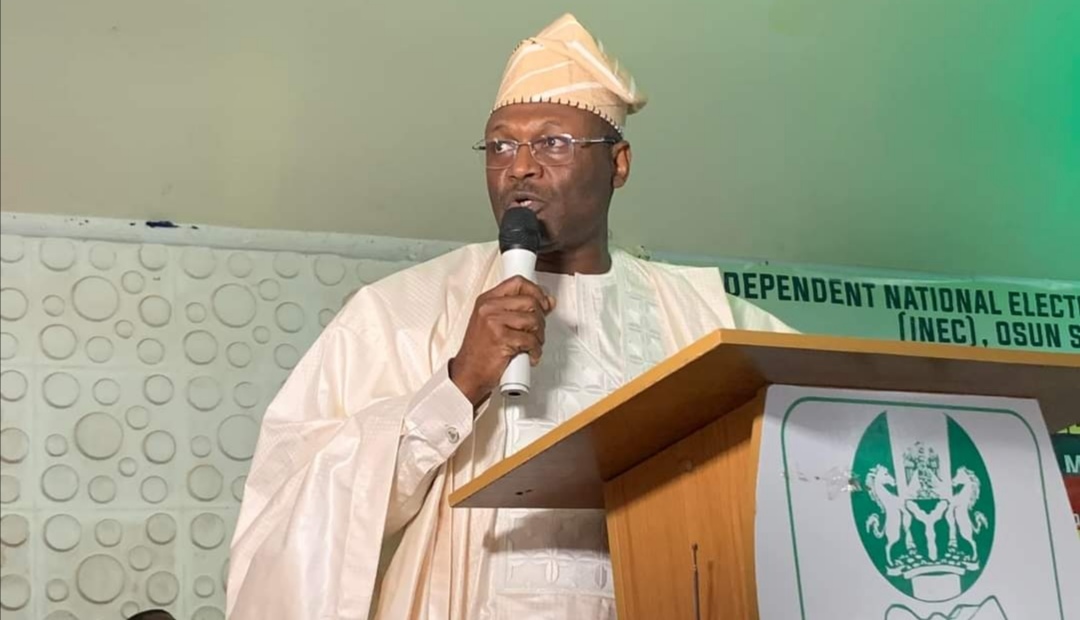SERAP also asked him to use the mandates of INEC to pursue constitutional and legal reforms that would explicitly recognize Nigerians’ right to vote and to vote securely in free, fair and honest elections as a fundamental right.
In a letter dated October 28, 2023 and signed by SERAP Deputy Director Kolawole Oluwadare, the organisation said explicit recognition of the right to vote and to vote securely would improve the right to representative democracy in Nigeria.
According to the organisation the continuing resistance by politicians to bring the country’s electoral legal rules up to date with modern technology, and make the use of technology mandatory in the country’s electoral process is entirely inconsistent and incompatible with Nigerians’ right to effectively participate in their own government.
SERAP noted that large-scale election infrastructure insecurity poses serious threats to the fundamental right to vote that INEC can no longer ignore, adding that the challenges facing the electoral process can be addressed by a swift adaptation and innovation in both election laws and election technology.
The letter read in part: “Democracy works best when everyone participates. Legally enforceable right to vote is the bedrock of any democratic society. The right to vote and to vote securely is too important to be left to the whims of politicians.”
“Confidence in the electoral process is on the decline. Many Nigerians are expressing concerns about the credibility and integrity of the electoral process.”
“Nigerian politicians have little incentive to pursue genuine constitutional and legal reforms that would improve the exercise by Nigerians of their right to participation in the electoral process and in the mechanisms of government.”
“INEC has constitutional and statutory responsibilities to promote and advance the right of eligible Nigerians to vote and to vote securely as part of their internationally recognized right to political participation.”
“INEC has the mandate to promote, protect and facilitate the exercise of the right to vote and to vote securely as a fundamental right. Exercising such mandates would rebuild public confidence in the ability of the commission to effectively perform its responsibilities and to act in good faith.”
“The major problem facing the country’s democracy is the lack of respect for Nigerians’ right to participation and the concomitant lack of trust in election results. If citizens do not believe in the election process, then the entire system of democratic government becomes a questionable enterprise.”
“The explicit recognition of legally enforceable fundamental right to vote and to vote securely in free, fair and honest elections would protect the right to participation, safeguard and strengthen the credibility and integrity of the country’s democracy.”
“It would rein in politicians who continue to abuse the electoral rules to distort and undermine the right to participation with almost absolute impunity. It would also amplify the voices of the people, not corrupt politicians, and modernize and secure the country’s future elections against any threats.”
“The country’s electoral legal rules are entirely inconsistent and incompatible with the requirements of the right to political participation, which is explicitly guaranteed under article 25 of the International Covenant on Civil and Political Rights and article 13 of the African Charter on Human and Peoples’ Rights which Nigeria has ratified.”
“The right to vote and vote securely would also impose clear obligations on the electoral commission and other authorities to ensure the ‘will of the people’ in elections, and to administer elections in an objective and neutral manner, and in conformity with modern technology.”
“The crisis confronting Nigerian elections and lack of public trust and confidence in the electoral process can be addressed if the right of Nigerians to vote and to vote securely is explicitly recognized as justiciable constitutional right.”
“Nigerians do not currently enjoy explicit and enforceable right to vote and to vote securely. As the 2023 general elections have shown, the absence of this right in the Nigerian Constitution 1999 [as amended] has seriously undermined the right of Nigerians to effectively participate in their own government, and the credibility and integrity of the electoral process.”
 DailyrecordNg …Nigeria's hottest news blog
DailyrecordNg …Nigeria's hottest news blog









